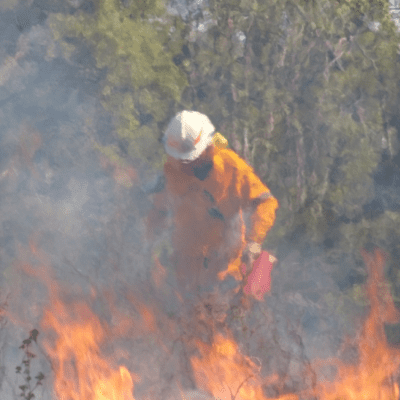For all the great activities we equate with the warmer months, the threat of bushfires lives deeply in the psyche of Australians, particularly in rural and regional communities.
 Yet again, we have witnessed its savage nature, as multiple fires have wreaked havoc across regional Queensland. It is yet another stark example of the challenging circumstances faced by those who live in the bush.
Yet again, we have witnessed its savage nature, as multiple fires have wreaked havoc across regional Queensland. It is yet another stark example of the challenging circumstances faced by those who live in the bush.
Our cities are not exposed to the same level of risk. Many of those who live in the city would never have had their lives directly touched by many of the adversities that comes with rural life.
Consequently, the lived experience of city-dwellers simply does not sharpen the mind to the threat of those who live with this risk.
This is particularly worrying when bureaucrats who make the rules governing life and work in rural and regional Australia are largely city-based. All too often what is imposed on regional Australians makes an already challenging environment in the bush even harder.
For a long time, many regional communities have argued that excessive red tape and unnecessary rules has hindered their efforts to clear roadsides and conduct fuel reduction burns to protect their properties.
As mentioned on this Beef Central article yesterday, Central Queensland landholder John Burnett discussed how red tape was stifling opportunities to conduct hazard reduction burns, saying “We had a situation the other day where our Fire Warden could not issue permits because someone had called a total fire ban based on the weather forecast,” he said.
As a result, large swathes of public and private land are unable to be maintained in a way which minimises the likelihood and intensity of a bushfire.
Making changes to these rules are well within the ambit of the regulators and rule makers. Yet, instead of making changes, city-based bureaucrats ignore the practical and instead focus on ideological pursuits such as ‘climate change’.
 The political class and inner-city elites will say the recent, devastating fires are caused by human induced climate change and the increased industrial activity which has occurred over the past two centuries.
The political class and inner-city elites will say the recent, devastating fires are caused by human induced climate change and the increased industrial activity which has occurred over the past two centuries.
Yet, bushfires have always happened, and will continue to happen, but they will be made worse by city-based rule makers who ignore the reality of life in rural and regional areas in pursuit of their green dream.
We need to shift focus and manage our land in ways that reduces the prevalence and severity of fire.
For a start, the Queensland state government should amend the definition of “essential management” under the Planning Regulation 2017. It should be amended to state that vegetation clearing on freehold land is allowed “where it is reasonably necessary to remove or reduce the risk that the vegetation poses of serious personal injury or damage to infrastructure.”
The state government should also further amend the Planning Regulation 2017, to allow far more clearing around infrastructure and property for firebreaks, instead of the current insufficient 30 metre rule.
The political class and inner-city elites love to lecture rural and regional communities, claiming their rules ‘protect’ the environment. But the practical reality is that those who make the rules, yet never live in the communities that suffer the consequences, prioritise their ideological pursuits over and above the welfare of regional communities and the protection of human life.
Devastating bushfires which destroy the environment, property, livelihoods and communities sharpen the mind.
What is clear is that governments, at all levels, need to refocus on the bush.
We should not face the rest of this fire season, and the ones yet to come, with rules and regulations that prevent communities from being able to properly prepare to defend themselves from the harsh realities of life in the bush.
Lachlan Clark is a Research Fellow at the Institute of Public Affairs.
